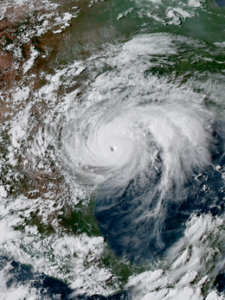“Harvey” by Mike Nichols: Inprint Workshop Participants on Harvey
September 18, 2017, by Inprint Staff
 On Monday, September 11, An Open Book posted the first in a series of micro essays by participants in Inprint’s nonfiction workshop led by poet Cait Weiss. She says, “Each piece serves as a proof of our city’s resilience—you can give us rain, wind, uncertainty and days of isolation, but as soon as we can find a pen, we will turn that into art.” For her full introduction and the first essay in this series, click this link.
On Monday, September 11, An Open Book posted the first in a series of micro essays by participants in Inprint’s nonfiction workshop led by poet Cait Weiss. She says, “Each piece serves as a proof of our city’s resilience—you can give us rain, wind, uncertainty and days of isolation, but as soon as we can find a pen, we will turn that into art.” For her full introduction and the first essay in this series, click this link.
“Harvey” by Mike Nichols
As the wind and rains on the dirty side of Hurricane Harvey increased, I sat on the wet tiles of the front porch of our sturdy house on the south shores of Lake Livingston in San Jacinto County. All of the outdoor furniture had been moved to the safety of the basement or garage. I watched the strong waves break over the dock and over the ten-foot concrete apron across an expanse of lawn moving nearer and nearer to the porch stairs. I knew the power of these waves, punching with eight pounds of force for every cubic foot of churning water overflowing its banks and its iron bulkheads in this ninety thousand acres lake. I had seen the result of Hurricane Ike tearing the roof off our next-door neighbor’s house and destroying our dock. I was powerless against the whims of Hurricane Harvey. All I could do was watch and wait.
As my stomach churned with fear, I thought about the upcoming Jewish holiday of Sukkot – Sukkot was a precursor of American Thanksgiving, a festival thanking God for the bounties of the fall harvest. Jewish tradition mandates that during Sukkot, families must eat their meals and sleep under an arbor. The ritual requires the arbor to be temporary, without walls, and with a lattice roof through which the family can see the night stars. The liturgy reminds Jews of our time in the wilderness living as nomads in fragile structures. I always understood Sukkot as a physical reminder for us to have compassion for everyone in the world who lives without the security of a stable home and community and as a reminder that we are responsible to help those people who live in fragile circumstances because of their economic, social, political, or immigration status. Continue reading

